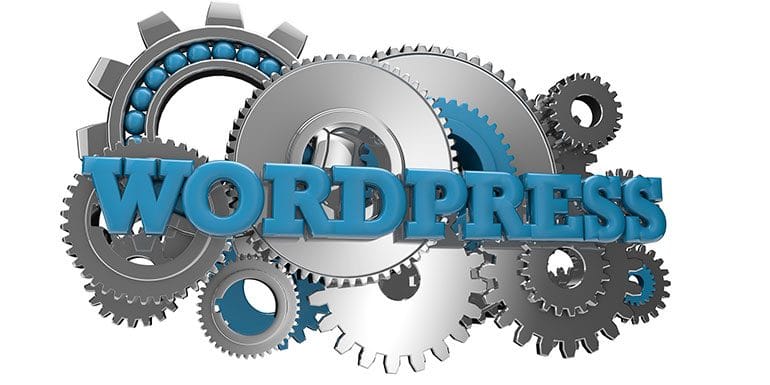11 Key Insights to understanding why WordPress is so successful as a CMS and what we bloggers and freelancers can learn out of each point.

WordPress is super successful, and there is no denying it. According to W3Techs, WordPress is powering 33%+ of all the websites on Internet, i.e., if you visit three different sites in a day, you are more likely to be hitting one of them powered by WordPress.
It is awesome.
We should be thankful we are living in the era of WordPress.
But have you ever wondered why WordPress is so successful? As a freelancer and blogger, what can we learn from the success of WordPress?
But before we learn something from WordPress, a couple of lines about the history of WordPress.
Matt Mullenweg, the founder, and creator of WordPress, built it as the successor to b2(cafelog.com) after it was stopped development. He wanted to support the original developers. He was one of the bloggers using b2 and as it was not supported further. It laid the path to what we know as WordPress.
So now let me share why I think WordPress has taken the Internet by surprise in the past decade.
1. Ease of Use
The vision of Matt Mullenweg is WordPress. Apart from being a developer of the software, he was also using it. So it helped him make things easy for the end user.
He could visualize the pain points that came with the use of WordPress and so he worked on them to make it easy for the end user, which was one of the reasons for the success of WordPress.
Moral: Be the user of your products. It will help take out a lot of friction from your product for the end user.
2. Design Options
As a business, I prefer not to re-invent the wheel. If something can be built on, it is more preferred. It not only helps make things moving faster but also makes things more interactive.
I am not talking about development but design.
Imagine you have a repository of thousands of design to choose and build upon?
As a service-oriented company, it helps make the things done at times in a single day because it reduces the time to get things done, which helps in reducing the pricing for the clients as well.
I am yet to find a topic where you don’t have a theme ready in WordPress.
Be it a site for kids or site like Fiverr or a review site or an eCommerce site or anything that you can imagine. You can get a good theme for the niche and then build on that style, as you want.
Moral: UI matters. Provide a better UI to your customers.
3. Customization With Plugins
The real power of WordPress lies in the availability of plugins, along with the ease of plugin creation.
There are hundreds of thousands of plugins to help you get everything (by everything I mean everything) you want to be doing with WordPress.
Other CMSes like Joomla make you run after the version number and plugin compatibility.
A plugin is compatible with Joomla 2.x and not compatible with Joomla 3.x and things like those, but when it comes to WordPress, the compatibility is not a very big issue. Every plugin more or less is compatible with WordPress 2.8+ as far as what I have seen.
The problem of WordPress plugins is too many options to start.
Let us say you want two different sets of social icons.
At times I have seen people get it done by using two sets of plugins and not by a single plugin that supports both the options.
Similar things are with sliders.
There are so many slider plugins available that I have seen people use one plugin for each slider on a page and not opt for one that supports multiple sliders per page.
What happens, in the end, is they end up having jQuery conflicts as well as higher page loading time.
Moral: The problem of plenty is a far better problem than having a problem to make it work. Make it enticing for people to contribute.
4. Simple to Get Started
I have seen so many content management systems like xenforo, vBulletin, phpBB, Drupal, Joomla that have a lengthy installation process. Needless to mention the list of pre-requisite before you can even upgrade.
WordPress installation takes hardly a couple of minutes and is very simple to upgrade.
Apart from the ease to update the core software, the plugins and themes installation and upgrade is also effortless.
Moral: KISS (Keep it Simple Silly) always work. Make sure your products are effortless to use and intuitive to onboard. If you are offering user signup on a website, try to have it as simple as possible. Do you need the captcha for contact form when no one is spamming?
5. From Blogging to CMS
WordPress is not only for setting up a blog, but one can also use it as a CMS for your site.
My company website WebTurtles is set up in WordPress, and it is not a blog.
The options are endless. One can have a front page for a site and have a blog inside or can have a blog with other pages within.
Moral: Under promise and over deliver. Add extra features or surprises in the product because of everyone like surprises.
6. SEO friendly
SEO has always been a top priority for WordPress, and this could be yet another reason for being used by the developer and visionary of the software.
The HTML generated by the default WordPress themes were SEO friendly. So as more and more themes were created, they adopted the basics and excelled it.
As an example, the WordPress menus generated are ul and li based, which means menus, will not have a table-based layout, which is the case in many other WordPress alternative CMSes.
On top of that, you can do a lot more to improve SEO for WordPress.
Moral: SEO always works.
7. Strategic mistakes by competitors
Movable Type had been a competitor to WordPress, but they announced a licensing fee in 2004, which made Movable Type community look for other alternatives.
WordPress was a perfect solution waiting for them. It was not only an alternative solution but was open source, free, and had tons of free themes and plugins. WordPress also provided easy to import option to switch your blog to WordPress.
Moral: You cannot put a price tag for things that don’t add value to the user. People pay the price for the product and not for the marketing efforts. Your product should be worth the price tag.
Moral: Provide an option for users to switch to your product.
8. Timing
Blogging was about to explode in the 2003ish time.
WordPress as a solution was at a perfect time for people looking to blog.
Moral: Vision the future and try to get your product at the right time when people are looking for it.
9. Marketing
Excellent products also need marketing and WordPress marketed to big players to use WordPress.
Check some of the WordPress blog examples here.
Once you have a great product, you can approach a big player to use your product and endorse it.
Moral: Never underestimate the power of asking.
10. Scalable
Sites developed in WordPress are easily scalable. You can use HyperDB WordPress plugin to add load balancing and partitioning to your WordPress with just a few clicks. It helps your WordPress site to a significant level of Scalability.
Apart from that, as your site grows, you may need to add CDN for images, or you may want to cache. Everything is doable with a few clicks.
WordPress also supports VIP hosting for big sites.
Moral: Make sure your customers can focus on building their business instead of taking the time to learn to use your product.
11. Adaptability
WordPress is adaptable to almost anything you can think about.
You can customize WordPress to a blog or a website or a coupon site or as a review site, and the list continues …
But …
WordPress still has a prime focus on blogging.
Moral: Be focused in your approach. Adapt to new but don’t lose the focus on the old. WordPress is still a blogging platform.
Conclusion
According to me, the most critical reason why WordPress is so successful as a CMS is because it was a vision of a person who is an end user of the product.
When a product is new, it will not have too many users providing constructive feedback. So if the developers are using the product, they can always work on the pain points of the end user and make it easy for the users.
